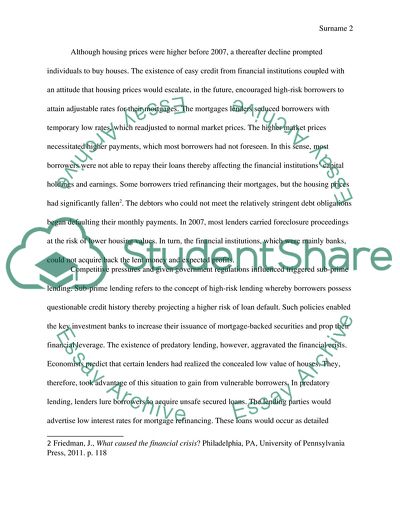Cite this document
(How Has the Financial Crisis 2007 Affected the Economy Coursework Example | Topics and Well Written Essays - 1500 words, n.d.)
How Has the Financial Crisis 2007 Affected the Economy Coursework Example | Topics and Well Written Essays - 1500 words. https://studentshare.org/macro-microeconomics/1853883-how-has-the-financial-crisis-2007-affected-the-economy
How Has the Financial Crisis 2007 Affected the Economy Coursework Example | Topics and Well Written Essays - 1500 words. https://studentshare.org/macro-microeconomics/1853883-how-has-the-financial-crisis-2007-affected-the-economy
(How Has the Financial Crisis 2007 Affected the Economy Coursework Example | Topics and Well Written Essays - 1500 Words)
How Has the Financial Crisis 2007 Affected the Economy Coursework Example | Topics and Well Written Essays - 1500 Words. https://studentshare.org/macro-microeconomics/1853883-how-has-the-financial-crisis-2007-affected-the-economy.
How Has the Financial Crisis 2007 Affected the Economy Coursework Example | Topics and Well Written Essays - 1500 Words. https://studentshare.org/macro-microeconomics/1853883-how-has-the-financial-crisis-2007-affected-the-economy.
“How Has the Financial Crisis 2007 Affected the Economy Coursework Example | Topics and Well Written Essays - 1500 Words”. https://studentshare.org/macro-microeconomics/1853883-how-has-the-financial-crisis-2007-affected-the-economy.


